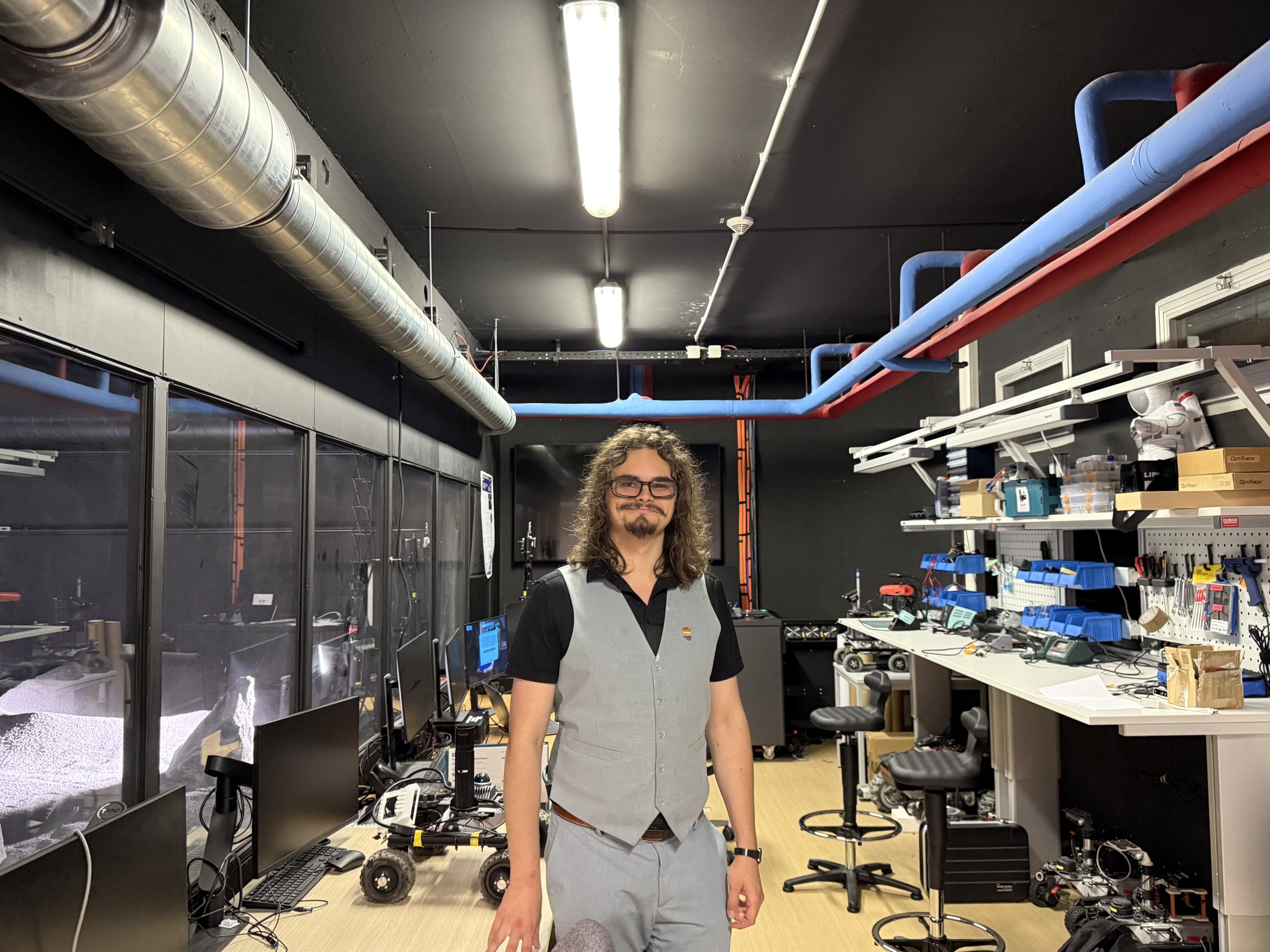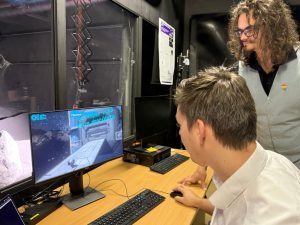Every year students in the Master in Space Technologies and Business look forward to the moment they’ll programme a lunar rover. But this requires a solid grasp on specialised coding. Doctoral researcher Loick Chovet knows this first hand, so he built a gaming platform that teaches students through immersive scenarios.
From the time he was young, Loick Chovet has been fascinated by the promise and potential of robots. It was only natural then to make it his profession and academic focus. Specialising in robotics eventually led him to space robotics. His upcoming doctoral thesis focuses on a shared economy for lunar rovers, where machines could communicate and share tasks by themselves on the moon.
As a video games enthusiast and being passionate about scientific communication, he already discovered a way to combine all his interests into one experience. He designed a video game to experience the impact of the lunar communication delay – a delay of approximately 1.2 seconds that causes a lag time for rover controllers on Earth. He has also participated in the creation of workshops at the Luxembourg Science Center.
Therefore, when he became a teacher in the Master’s programme for Space Technologies and Business, the idea to use gaming to enhance the student experience came naturally.
Learning ROS2
ROS2 is an open-source software that acts as the backbone for autonomous systems. It helps robots communicate, share data, and perform tasks together. Mastering this software is extremely beneficial for programmers, as top companies in Silicon Valley are promoting ROS2 as the future of robotics. Not just for space robots, but also as the core software for many autonomous systems, from self-driving cars to industrial robots.
Yet the students in the master’s programme come from a wide variety of backgrounds, and getting the hang of this advanced software with complex logic and rules can feel daunting.
That’s why Chovet, a robotics engineer, decided to build a gaming platform for students to learn the ROS2 language through fun, immersive scenarios. The platform was used by Master students and several tests were run. For the next stage, he hopes to develop a spin-off product and share the learning tool with schools, private institutions, and robotics clubs.
‟ The game provides stimulation and a sense of reward”

Doctoral Researcher at SnT
Learning by doing and more
Once logged in the platform, players progress through levels where they must apply ROS2 commands to solve tasks. Learning the ROS2 language through immersive scenarios is a great way to keep students engaged and offer an immediate sense of reward.
While progressing in the game, students will gradually control the ROS2 language. They apply it directly to the robot and integrate feedback effectively. And the results are transparent: by the end of the programme, students can code simple commands for a ROS2 robot.
Potential for many more students
For Loick, science communication is essential, because clear communication lies at the heart of solving society’s challenges, while poor communication, he believes, is often at the root of problems from everyday misunderstandings to global crises.
He argues that real progress in learning only happens when people actively invest in it -by individuals through their time and effort, and by society through stronger support for education- because that commitment deepens understanding and accelerates growth.
–
About the researcher
Loïck Chovet is a Doctoral Researcher in the SpaceR research group.
SpaceR or Space Robotics is an SnT research group specialising in space robotics. SpaceR researches autonomous robots for exploring planets and orbits. This includes using local resources and servicing in space. The group focuses on aerial and ground robotics. They also work on multi-robot cooperation.
